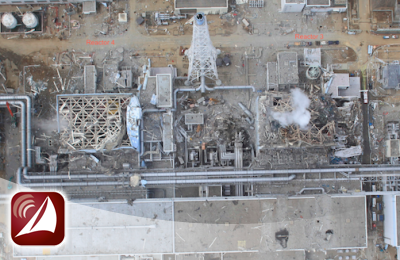Always Read Beyond Misleading Headlines
/Japan Times / Reuters September 10, 2014
Japan’s regulator OKs nuclear plant return while pushing to close old reactors
by Kentaro Hamada and Osamu Tsukimori
Reuters
The Nuclear Regulation Authority gave the go-ahead on Wednesday for the restart of a nuclear power station, the first step to reopening an industry that was mothballed after the Fukushima disaster and which may involve the closure of a dozen old plants.
The NRA said Kyushu Electric Power Co.’s two-reactor Sendai plant in Kagoshima Prefecture could restart, although that still hinges on the approval of local authorities.
Japan is nearing the end of its first full year without nuclear power since 1966 and public mistrust of the sector remains high after the 2011 Fukushima triple meltdown, the worst such disaster since Chernobyl.
The government is pressing regulators to make the tough decision on whether to decommission the oldest of the country’s 48 reactors, which face higher safety hurdles than the rest. Weeding out reactors that are 40 years old or more may help win public trust in the rest of the industry.
“For myself, I would like to proceed with smooth decommissioning (of some plants) and at the same time the restart of nuclear power stations certified as safe,” Yuko Obuchi, the new minister for economy, trade and industry, who oversees the nuclear industry, said last week.
The government has been pressing to restart reactors that receive safety approval from the NRA to reduce Japan’s reliance on expensive imported fuel.
The push for a reckoning on some plants is “clearly part of the strategy by the government and utilities to send a signal to the people of Japan that they are listening and taking into account the lessons of Fukushima,” said prominent nuclear power critic Arnie Gundersen, director of Fairewinds Energy Education.
“But it also reflects the challenge faced by utilities in finding the funds to bring older reactors to a standard that can pass NRA approval,” Gundersen, a veteran U.S. nuclear engineer who turned against nuclear energy for safety reasons, said by email.
Under post-Fukushima rules, reactors are to be decommissioned after 40 years. They can receive a 20-year extension but that is subject to more rigorous and costly safety regulations.
As many as two-thirds of Japan’s 48 idled nuclear units may never return to operation because of the high costs, local opposition or seismic risks, while one-third will probably come back online eventually, according to a Reuters analysis from earlier this year.
The NRA gave final safety clearance at a meeting on Wednesday for the Sendai plant, after granting the two-reactor power station preliminary approval in July.
The approval certifies the upgraded design and safety features of the reactors, but the units, which have been shut for more than three years, still have to undergo operational safety checks and require local authorities to approve their restart.


